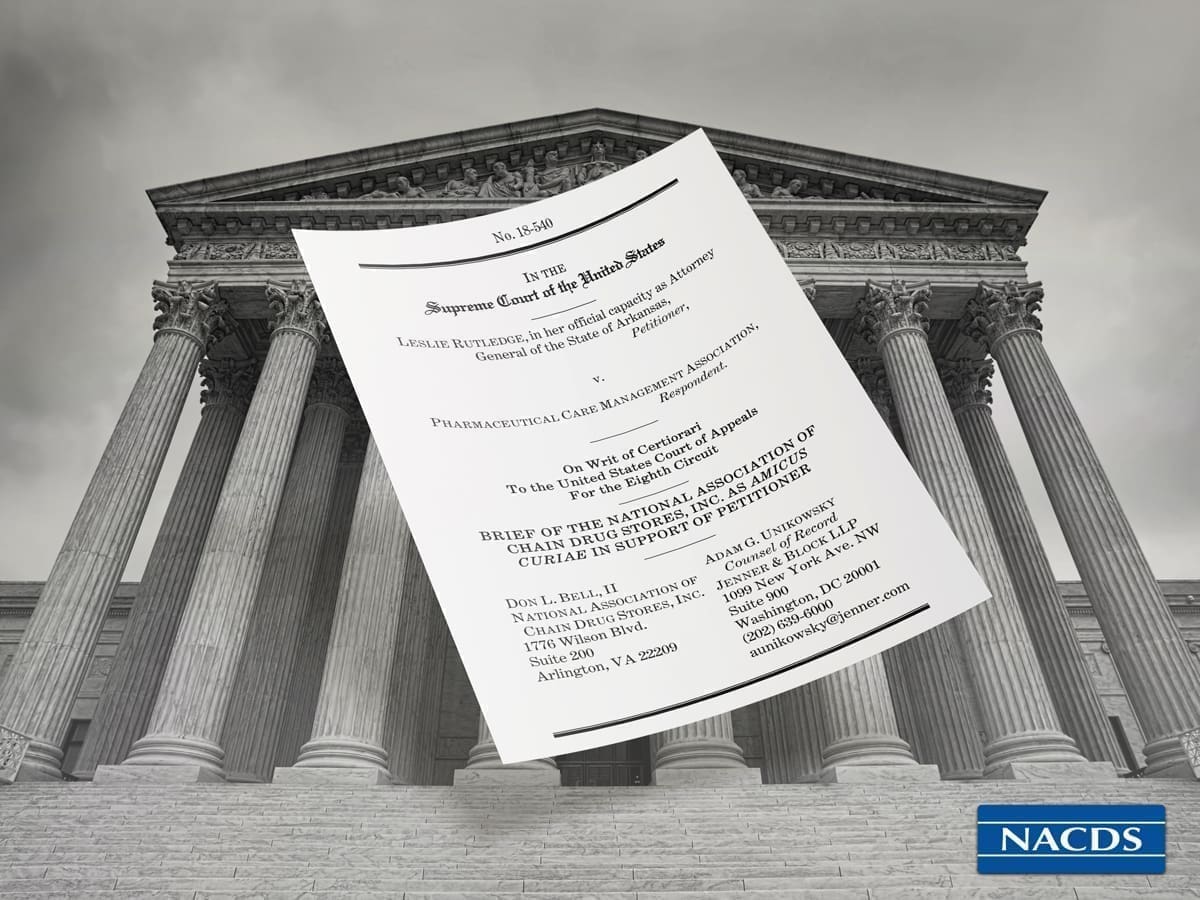
An amicus brief by the National Association of Chain Drug Stores (NACDS) urges the U.S. Supreme Court to stand by its precedents and uphold an Arkansas law that “prevents [pharmacy benefit managers] PBM contracts from reimbursing pharmacies at low rates that do not cover the costs of purchasing and dispensing expensive prescription medications, which presently results in pharmacies taking a loss for dispensed prescriptions.”
NACDS said, “In addressing such losses, Arkansas’s legislature has chosen to ensure that pharmacies can keep their doors open to patients.”
The U.S. Supreme Court is set to review the Eighth Circuit Court of Appeals’ decision against an Arkansas law that ensures pharmacy reimbursement rates cover pharmacies’ costs of purchasing drugs. The case that the U.S. Supreme Court will consider is Rutledge v. Pharmaceutical Care Management Association. The question is whether the Eighth Circuit erred in holding that Arkansas’s statue regulating PBMs’ drug-reimbursement rates, which is similar to laws enacted by about 40 other states, is preempted by the Employee Retirement Income Security Act (ERISA).
NACDS argues, “Under a straightforward application of this Court’s precedents, Arkansas’s law is not preempted. It does not refer to ERISA plans, has only an attenuated connection to ERISA plans, and serves laudable policy goals unrelated to the purposes of ERISA. The Court should resolve this case narrowly and leave those precedents intact, rather than using this case as a vehicle to make broad changes to preemption law.”
In further summarizing the argument, the brief states:
- “Under this [U.S. Supreme] Court’s precedents, any incidental effect Arkansas’s law will have on the relationship between PBMs and ERISA plans is insufficient to trigger ERISA preemption.”
- “Arkansas’s statute also serves sound policy interests unrelated to the goal of ERISA preemption. The statute is designed to mitigate a healthcare crisis: the rampant closure of pharmacies…When a pharmacy closes in a rural area, local residents may have no alternative healthcare provider nearby, leading to the risk of noncompliance with medication regimens and poor health outcomes.”
- “That is a laudable legislative goal – and it in no way undercuts the core purpose of ERISA preemption, which is to protect ERISA plans from inconsistent state administrative burdens.”
The U.S. Supreme Court will hear the case on April 27, 2020.